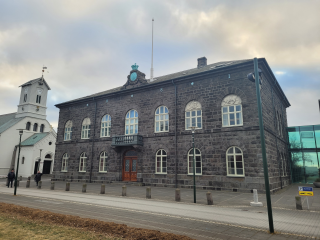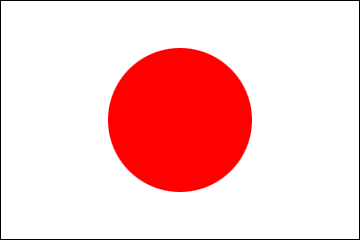From Ambassador (2021 Icelandic parliamentary election)
2021/10/4

Parliamentary election was held in Iceland on September 25. Four years has passed since the last election in 2017. Soon, the Japanese general election will be held after 4 years, too, as the current four-year term of the Lower House members expires.
I often think there are too many general elections in Japan, compared with other countries. The Upper House election alone is held every three years, the latest one being in 2019.
The Icelandic parliament is unicameral and has 63 members. “Motion of No confidence” rarely leads to the dismissal of parliament. Therefore, national elections are not held as frequently as in Japan. Consequently, the Icelandic people regard the voting right valuable. I heard that some elderly people go to their polling station in their best dress. The voter turnout is over 80% (!), which is way higher than the Japanese rate.
In this election, the current three ruling coalition parties did better than expected and increased their number of seats. Although it is an unusual partnership in which left-wing and right-wing parties form a coalition, it looks like this Government will continue and renew their coalition.
But there was a big surprise after the final result of the election was announced.
A late recount in the Northwest District, due to the small difference in votes that affected the distribution of “adjustment seats” between constituencies, resulted in five people being replaced by another five on the candidate lists.
After all, the number of seat allocated for the parties were not affected. Nine adjustment seats are arranged in a very complicated manner which is difficult for most of us to understand (but mathematically accurate), to ensure proportional distribution of the number of votes won by each party and to correct inequality in the value of votes in each constituency. The small difference as a result of recounting of votes has caused this. (I have to admit that I don’t completely understand the system and cannot explain it well…)
The initial result showed women winning 33 seats, followed by world-wide news coverage of Iceland making history by electing Europe's first female-majority parliament. But after the recount, the number of seats won by women fell down to 30, a little bit disappointing result for a top-runner country in terms of gender equality.
It further came to light that the ballots for the Northwest District were not sealed on election night and other breaches of regulation occurred during the recount. Some people call for revote, but I assume that is unlikely to happen after the new parliament is called to assemble. This series of turmoil resulted in shaking confidence in the political system and democracy. Re-evaluation of the electoral system that produced such mysterious results is likely to be on the future political agenda.
I often think there are too many general elections in Japan, compared with other countries. The Upper House election alone is held every three years, the latest one being in 2019.
The Icelandic parliament is unicameral and has 63 members. “Motion of No confidence” rarely leads to the dismissal of parliament. Therefore, national elections are not held as frequently as in Japan. Consequently, the Icelandic people regard the voting right valuable. I heard that some elderly people go to their polling station in their best dress. The voter turnout is over 80% (!), which is way higher than the Japanese rate.
In this election, the current three ruling coalition parties did better than expected and increased their number of seats. Although it is an unusual partnership in which left-wing and right-wing parties form a coalition, it looks like this Government will continue and renew their coalition.
But there was a big surprise after the final result of the election was announced.
A late recount in the Northwest District, due to the small difference in votes that affected the distribution of “adjustment seats” between constituencies, resulted in five people being replaced by another five on the candidate lists.
After all, the number of seat allocated for the parties were not affected. Nine adjustment seats are arranged in a very complicated manner which is difficult for most of us to understand (but mathematically accurate), to ensure proportional distribution of the number of votes won by each party and to correct inequality in the value of votes in each constituency. The small difference as a result of recounting of votes has caused this. (I have to admit that I don’t completely understand the system and cannot explain it well…)
The initial result showed women winning 33 seats, followed by world-wide news coverage of Iceland making history by electing Europe's first female-majority parliament. But after the recount, the number of seats won by women fell down to 30, a little bit disappointing result for a top-runner country in terms of gender equality.
It further came to light that the ballots for the Northwest District were not sealed on election night and other breaches of regulation occurred during the recount. Some people call for revote, but I assume that is unlikely to happen after the new parliament is called to assemble. This series of turmoil resulted in shaking confidence in the political system and democracy. Re-evaluation of the electoral system that produced such mysterious results is likely to be on the future political agenda.
